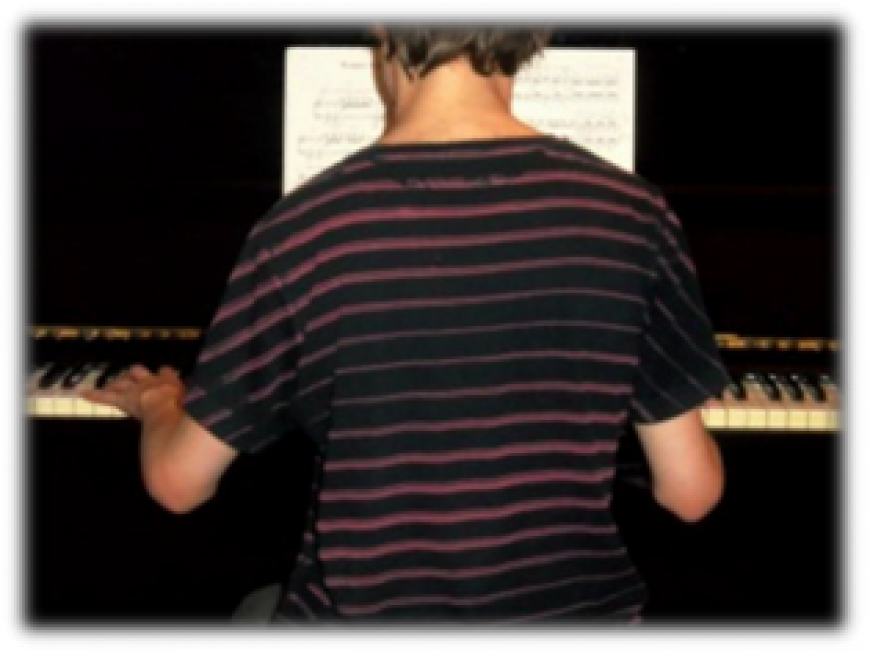So Much Music to Play, So Little Time!

By Elina Christova, Piano Teacher for Beginners to the Musically Advanced
Have you ever wondered what it takes to become a musician, and why you should even bother? Here are five compelling reasons to find an amazing teacher on Lessonface.com and start learning an instrument today!
Music Makes You Smart(er)
It’s been proven. Kids who take music lessons, play in an orchestra or band, do better in school, and later in life too. Why is that? Playing music is quite a complicated process. In order to learn a piece, you need to be able to first read the notes, figure out the rhythms, be able to line up your fingers to play the notes in the right order and timing, and finally you need to add all the tempo, dynamic, and expressive markings to create the finished product and play musically. In some cases, you may even have to memorize your piece. In the process of learning to do all of this, you are utilizing various skills at the different stages of going from Point A (the piece is brand new) to Point B (performing it in front of an audience) and at multiple levels simultaneously. If you learn to do this well, you can use the same steps to help you learn in other areas. Imagine if you can easily remember all those phrases in the foreign language you take at school, the capitals of all the countries in Europe and Africa in geography, algebraic formulas, historical milestones, the list is endless! Your memory improves the more you use it, so gradually your brain will get accustomed to working at a higher rate as you give it more complex things to do. Your regular practice sessions with your instrument will speed up all of the processes necessary to learn new material and improve your reflexes when you are studying other subjects as well.
Playing an Instrument Makes You More Coordinated
I just outlined briefly some of the steps commonly taken in learning a piece from scratch. Once you have reached performance level of a piece and you are ready to go on stage, the act of playing itself requires extreme coordination. Your brain is working at several levels, all at once. You are using your memory to remember the notes you are to play, but even that is more complex! You are recalling not only the actual pitches but the right fingerings, markings, tempos and changes in tempos, the different expression required for the various sections of your piece, when to take your breaths, various types of bowings, pedal markings, and many other details. To accomplish all this successfully you need to maintain a level of concentration that is remarkable and rarely used during your average day, and engaging your memory, ears, eyes, breath, arms, fingers, feet. By training your body and mind to work together in this way, you are achieving an amazing ability to think and act quickly and efficiently in other situations as well. When you turn sixteen, taking that first driving lesson and acing the test will be a snap! You will find maneuvering that car very easy while paying attention to everything around you all at the same time! (By the way, while driving is easier than playing the piano, it is also a lot more potentially dangerous, so zoning out during a Schubert Impromptu is ok, but when on the road staying alert is the way to go!).
You Will Learn How Music Works
You may think right now that composing music is a gift the great composers were born with, and that not everyone can become one. This is not entirely true. Music works according to some laws of its own and has a very definite structure that you can learn about. Soon you will begin to recognize patterns, and although you may not become a Beethoven, you can learn to analyze the pieces you are playing and discover more about what elements they are literally composed of, and how they all fit together. The ability to do this has several direct advantages: 1) you will be able to memorize your music faster, because you will be thinking of the notes in larger groups rather than single pitches 2) you will learn to appreciate music, see the differences and similarities between disparate genres, and start developing a critical ear, being able to say why you like a piece and why you don’t based on more than just your gut feeling. Once you can appreciate music better, you will be able to find patterns in other arts, sciences, books you read…In other words, you will become more acutely aware of what you perceive, and HOW you perceive it, and get more out life in general!
You Will Become Fearless
Performing in front of people can be very intimidating, but it is the greatest way to learn your instrument. Think of a public performance as a test, or exam in school. Your teacher schedules regular quizzes, papers, and finals to evaluate how much you have learned and in which areas you still need to work some more. This also gives her/him an opportunity to adjust her/his teaching to keep you progressing in the future. In music, you end up preparing for weeks and sometimes months at a time, and that performance at the end will show you and your teacher how well you have developed that process of preparation. A public performance, which is more stressful than a lesson, tends to uncover any weaknesses allowed to sneak in during the preparation period. You will not get the most out of your lessons if you don’t perform as well! You will learn to perform better under pressure the more you do it, so you should look forward to your next concert! Remember that a not so good performance is not so much a reflection of your ability, as of your level of preparation. The huge upside of all this: once you have become a pro at keeping calm on stage, nothing in life will scare you! (You also get to dress up nicely and get a lot of attention from your family!).
You Will Never be Bored
When you are learning an instrument and you dedicate a certain amount of time during the day to practice, you are engaging daily in a pleasant activity that will bring you and those around you much joy as long as you keep working at it. Music is an excellent pastime and you will see great results if you practice on a regular basis. With an instrument you will never experience boredom, and once you have finished your homework, or work, and you find yourself with some extra time, you can always continue to practice at that favorite piece you started learning a while back, pick up a new tune by ear, compose a piece of your own, or jam and improvise with friends. Once you have mastered one instrument, you may decide to pick up another. If you have the fundamentals of music down already, the second, even third instrument will seem much easier. Music is a universal language, and you will find many people to converse and share your passion with. Can you think of an area in life where music is not present? Almost every ad, movie, sports event, business presentation includes a soundtrack, because music has the power to stir up emotions and responses in us. Just think if you can be the one, creating those emotions in others!




